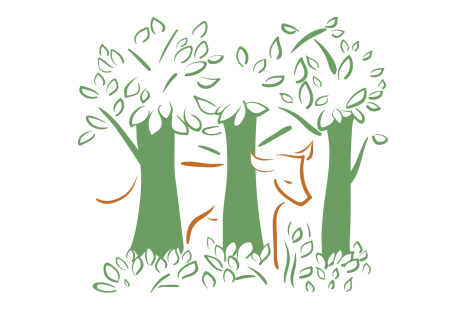The concept of “Leave No Trace” can be summarised in seven basic principles which aim to minimise the impact of outdoor activities on the natural ecology:
The concept of “Leave No Trace” can be summarised in seven basic principles which aim to minimise the impact of outdoor activities on the natural ecology:
Plan ahead and prepare

Good preparation for hiking — including route planning, weather observation, and ensuring you have suitable equipment and necessary supplies — can help avoid many potential problems and accidents. Moreover, thoughtful preparation of your equipment can reduce the use of disposable packaging and minimise the need for waste disposal.

Travel and camp on durable surfaces

Camping involves setting up tents, cooking, sewage and excretion etc., which have a greater impact on the environment. For example, intensive trampling on grass will compact the soil and degrade the grassland. Therefore, campers and bikers should use designated campsites and bike trails respectively, since the designation of specific sites can improve environmental carrying capacity and minimise environmental impacts, thus reducing the impact of the activities on the surrounding environment. Group hiking activities should be conducted in well-maintained trails rather than self-developed areas to minimise surface erosion caused by human activities.

Dispose of waste properly

You should always take away any waste that does not belong to nature, whether it can be broken down naturally or not. This helps to keep our environment clean and hygienic, and it also stops our waste from being washed away by rainwater into rivers, streams, reservoirs or the sea, where it can cause pollution. The best way to do this is to take it back to urban areas for recycling or disposal, or to put it in animal-friendly bins. This reduces the chances of wildlife searching for food from the bins and accidentally eating it, and it also minimises damage to the environment.

Leave what you find

Do not disturb the existing landscape or damage monuments and heritage. Avoid painting or removing anything, including flowers, grass, branches or stones. Preserve the most natural form of hills and forests so that others can enjoy the beauty of nature.

Minimise campfire impacts

Always light fires in designated barbecue or camping areas. Fires built directly on grass can damage the vegetation. When cooking in the wilderness, use a barbecue stove, fire pit or fire mat and make sure the fire is completely out before you leave. Do not leave charcoal or fuel bottles behind. In dry weather, strong winds can blow flames onto dry grass or leaves, which can easily cause bushfires, so take extra care with fire.

Respect wildlife

Nature is the home of wild animals and plants. Therefore, we should respect their habitats and not feed or disturb them so as not to disturb their way of life. Keep an appropriate distance from animals to avoid misunderstandings or conflicts that could injure you or the animals.

Be considerate to other visitors

There are different types of users of outdoor activities in the countryside. Only if everyone shows self-discipline and respect for others can we all enjoy the beautiful natural environment together. We should respect rural residents by maintaining a quiet environment. Trespassing on private areas without permission is strictly forbidden, and playing loud music or making unnecessary noise should be avoided.
